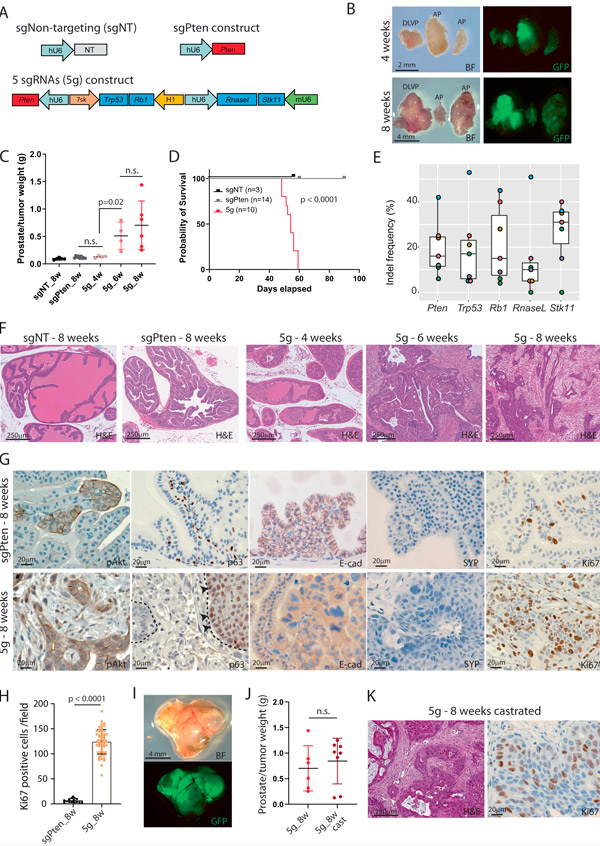New publications
Researchers have identified an important gene in the fight against prostate cancer
Last reviewed: 02.07.2025

All iLive content is medically reviewed or fact checked to ensure as much factual accuracy as possible.
We have strict sourcing guidelines and only link to reputable media sites, academic research institutions and, whenever possible, medically peer reviewed studies. Note that the numbers in parentheses ([1], [2], etc.) are clickable links to these studies.
If you feel that any of our content is inaccurate, out-of-date, or otherwise questionable, please select it and press Ctrl + Enter.

Finding out that cancer has spread is never pleasant news. A study from Aarhus University has identified a gene that determines whether prostate cancer patients develop metastases to other parts of the body.
"We have identified a gene called KMT2C that is very important for the spread of prostate cancer. Loss of the KMT2C gene increases the risk of metastasis. This may have implications for both patients at risk and for understanding the disease," says Associate Professor Martin K. Thomsen from the Department of Biomedicine.
Prostate cancer is the second most common cancer in Denmark and its incidence is constantly increasing. The disease progresses slowly, but metastatic prostate cancer is difficult to treat and has a high mortality rate.

Formation of an aggressive primary tumor due to the loss of five tumor suppressor genes. Source: Nature Communications (2024). DOI: 10.1038/s41467-024-46370-0
"This gene is a 'signal gun' in the development of the disease, and it can form the basis for screening patients in the future. If the gene mutates, then there is a risk of developing metastases in the patient. In the long term, we can use this sign for surgical intervention or careful monitoring of a group of patients," the researcher says.
The results of this study follow two recent studies from Spain and the United States that identified the PRMT7 gene and the CITED2 gene, respectively, as key regulators of prostate cancer metastasis.
The method itself is innovative.
The study, which was recently published in the journal Nature Communications, used mice. Using CRISPR-Cas9, the researchers were able to create genetically modified mice that allowed them to study complex functions associated with prostate cancer development.
The method itself is also interesting, says Thomsen. "If you turn off a gene in a cell line, nothing happens. But when we do it in combination with other genes, we can see how cancer can migrate from the primary tumor and start to create metastases. And that's what interests us, because metastases are usually what kill people."
"While many other CRISPR researchers are working on treating diseases, we're doing the opposite: we're trying to create a model of the disease to study it," he explains.
Cancer researchers still don’t understand the full extent of the molecular changes that cause the disease, but animal models can reveal unknown mechanisms. Using CRISPR technology, the researchers were able to create mice with eight mutant genes that are also commonly mutated in human prostate cancer. This allowed the researchers to develop a sophisticated mouse model of prostate cancer that can reveal the molecular functions of genes.
"All mice developed lung metastases, and further study showed that loss of the KMT2C gene was key to the formation of these metastases," says Thomsen.
"The study tells us both which genes are important for cancer development and how CRISPR can be used in modern cancer research. CRISPR helps us learn more than traditional animal experiments. We are proud to have been able to launch this technology, it means we can do things we couldn't do five years ago."
